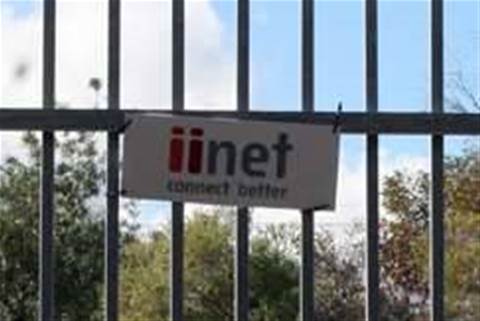Some iiNet shareholders have publicly complained of the pricing of TPG's $1.4 billion acquisition.
iiNet's largest institutional shareholder BT Investment Management has expressed its unease to Fairfax Media, with BT's head of smaller companies Paul Hannan quoted as saying he was "disappointed" and has "major reservations" on behalf of the fund manager.
"The prize of significant synergies needs to be shared with iiNet shareholders; the current bid does not reflect that," he said.
"We are staggered the board and its advisers doesn't see this and didn't argue stronger for a scrip-based alternative. To have dealt these strategic assets for a bog standard 25 per cent premium is absurd."
BT Investment Management owns 5.7 percent of iiNet.
iiNet founder and former chief executive Michael Malone, a 4 percent owner, also turned on the deal after initially supporting it. According to iTnews, he called for a clean-out of the iiNet board, in lieu of an acquisition.
"My family and I do not believe this deal as it is structured is in the best interests of shareholders, staff or customers," Malone said in a statement to media. "Indeed, it is appallingly silent on the impact on staff and customers."
Fairfax reported that NBN Co director and iiNet shareholder Simon Hackett has also refused to support the deal, and quoted an anonymous institutional shareholder as saying "the price is a little bit light".
In an update to investors on Monday, the iiNet board claimed that the premium is actually 33 percent, and again emphasised its unanimous recommendation for the deal "in the absence of a superior offer".
iiNet is liable to a $14 million break fee if it recommends another offer, even if it's better than the TPG deal.
The tensions may have arisen from iiNet's lack of consultation with major shareholders, with Hannan saying: "We've had no contact with the board. As a major shareholder, we are quite disappointed."
Top 20 stock holder Andrew Abercrombie was reported as selling off his shares progressively before TPG's offer came this month, as a reaction to the lack of investor information. "Investor relations haven't been great... I've heard it all through the media and I'm severely pissed off."
iiNet chairperson Michael Smith admitted to problems with shareholder communications, although there were "some severe restrictions" on what could have been disclosed during negotiations: "If I was a major shareholder and hadn't been contacted I'd think it was fair criticism. We've been focussing on the prosecution of what's in front of us."
Smith also addressed concerns about conflict with TPG's low-cost culture, reported iTnews.
"They're not going to run it into the ground," he said. "I just can't see how [TPG chief David Teoh] could get value out of that very large number - $1.4 billion - without doing all he can to preserve that."
Shareholders will be given a chance to vote for or against the acquisition around late June.
Hackett said that Optus should make a counter-bid to stop a merged iiNet-TPG entity overtaking it to become the new number two the market.
"On the other hand, there hasn't been much in the way of visible industry innovation or leadership coming out of Optus for a long time now, so I personally doubt they've got the 'ticker' to make a counter offer anyway," said Hackett.




.jpg&h=142&w=230&c=1&s=1)


_(21).jpg&h=142&w=230&c=1&s=1)
.png&h=142&w=230&c=1&s=1)



.jpg&w=100&c=1&s=0)
_(8).jpg&w=100&c=1&s=0)











